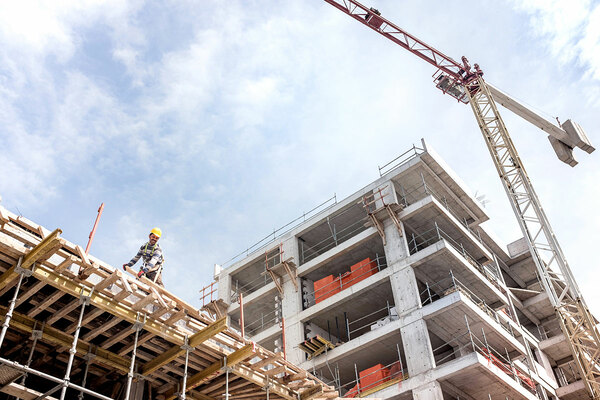You are viewing 1 of your 1 free articles
Housing association rent arrears rise as COVID-19 economic impact bites
Rent arrears among social housing tenants are rising across the country, with multiple housing associations reporting increased arrears in the six-month period to September.
G15 landlord Notting Hill Genesis, which owns and manages around 66,000 homes in London and the South East, said its rent arrears increased from 7.7% in the six months to 30 September 2019 to 9% in the same period this year.
Large Midlands-based landlord Platform Housing Group also noted an increase over the period, with arrears rising from 2.9% in the first half of 2019/20 to 3.31% this year.
The 45,000-home landlord said: “Over the past year, arrears have increased – reflecting a number of factors, including the moratorium on enforcing legal proceedings on customers in arrears, introduced as part of the UK’s COVID-19 response.
“This ended in September 2020 and we can now seek possession of homes consistent with our normal practice once we have investigated all other possible actions. The dynamics of arrears among Universal Credit recipients has had different directional impacts on overall arrears.”
Platform said because of the “elevated arrears position and challenging macroeconomic environment”, it has increased its bad debt provisions by approximately 16% year on year.
Large London landlord Peabody said: “Our arrears on current rents are higher than our usual levels, increasing in line with applications for Universal Credit, before reducing over a period of weeks as people receive their entitlements.
“Throughout this period our arrears have always remained at manageable levels and currently sit just below 2% of rent charged year to date. We do remain concern that the statutory five-week wait for Universal Credit causes unnecessary hardship for our residents.”
Arrears appear to be rising alongside increasing unemployment in the country. Data from the Office for National Statistics showed the UK unemployment rate in the three months to September 2020 was estimated at 4.8%, 0.9 percentage points higher than a year earlier and 0.7 percentage points higher than the previous quarter.
At last week’s Spending Review, chancellor Rishi Sunak announced that Universal Credit will be cut and Local Housing Allowance rates refrozen despite unemployment expected to grow throughout winter.
A Peabody spokesperson said: “These are tough times for people on low incomes. Sadly, it is not surprising that more people are in financial difficulty this year, and this is reflected in the pattern of rent arrears in April and May after the unprecedented level of new Universal Credit applications during the first lockdown.
“We have a dedicated financial inclusion team offering support to people who are struggling even on the lowest rents because of the pandemic. We would like to see an end to the five-week wait for Universal Credit and we think the government should make the £20 top-up payment permanent to help people make ends meet.”
A spokesperson for Notting Hill Genesis said: “COVID-19 has had a huge financial impact on many people living in our homes and as a result more have been unable to avoid falling into arrears.
“We have undertaken extensive research to identify support available within each borough and will continue to work with all affected residents to help them maintain their tenancies and get back onto a more stable financial footing.”
Platform Housing Group has been approached for a response.
Update: at 09:07, 01/12/20
This story was updated to include Peabody’s response.
Update: at 10:01, 01/12/20
This story was updated to include Notting Hill Genesis’ response.
Sign up for our development and finance newsletter
Already have an account? Click here to manage your newsletters














